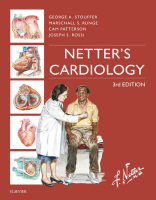Physical Address
304 North Cardinal St.
Dorchester Center, MA 02124

Sudden cardiac death (SCD) is defined as any death from a cardiac cause occurring within an hour of symptom onset. The term sudden cardiac arrest (SCA) refers to an event from which an individual is resuscitated or spontaneously recovers. Sudden…

Ventricular arrhythmias originate from the distal conduction system (distal to the His bundle) or ventricular myocardium, and with few exceptions, present with a wide QRS morphology on ECG. These may occur as isolated premature ventricular contractions (PVCs), couplets (2 consecutive…

Although they were once considered investigational techniques, catheter and surgical ablation have evolved to become commonly performed procedures in major hospitals worldwide. Catheter ablation is the preferred therapy for typical atrial flutter, and it should be considered as a first-line…

Etiology and Pathogenesis Approximately 800,000 strokes occur annually in the United States, and it is estimated that atrial fibrillation is the primary cause in approximately 15% of these events. The prevention of stroke remains a critical focus in the initial…

Atrial fibrillation (AF) is the most common sustained cardiac rhythm abnormality. The prevalence of AF is increasing because of a combination of factors, including the aging of the population, a rising prevalence of chronic heart disease, and more frequent diagnosis…

Supraventricular tachycardia (SVT) is an abnormally rapid heart rhythm originating proximal to the bifurcation of the bundle of His. SVTs are relatively common clinical arrhythmias that present in people of all age groups. They are frequently symptomatic and often result…

In adults, bradycardia refers to a ventricular rate that is <60 beats This figure is somewhat arbitrary and does not necessarily connote disease. For instance, it is common to find healthy athletes with resting heart rates of approximately 40 beats…

Stress-induced cardiomyopathy, also called Takotsubo cardiomyopathy, represents a syndrome of transient left ventricular (LV) dysfunction from a variety of psychological or physiological stressors. Patients in the critical care setting are particularly vulnerable, but ambulatory patients subject to severe emotional distress…

Cardiac transplantation developed in conjunction with research into myocardial protection and heart preservation, which facilitated safe open heart surgery. In 1961, Shumway and Lower published their seminal article describing the technique of orthotopic cardiac transplantation in a canine model, with…

Myocarditis is an inflammatory process that can involve one or more components of the myocardium, including cardiomyocytes, the interstitium, and the coronary vasculature. This inflammatory process may result from infectious processes, responses to pharmacological or toxic agents, hypersensitivity reactions, or…